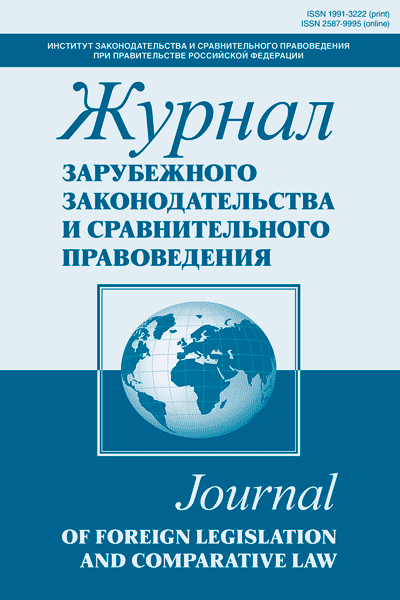Russian Federation
Russian Federation
Russian Library and Bibliographic Classification 67
The police as a law enforcement body of a specific state was created to perform a variety of tasks in order to maintain the law and order in society, to ensure the security of the state, its citizens. In accordance with the role of the police in the legal doctrine of different countries (Germany, France, England, etc.), in due time, there were even separate schools to study this institution. The police are also one of the subjects of anti-corruption. Nevertheless, this does not mean that corruption cannot exist in the ranks of the police. Despite the general increase in confidence in the police and their employees, noted by the All-Russia centre of studying of public opinion over the last few years in the Russian Federation, today the efforts to combat corruption need to be undertaken not only outside, but also within the police departments themselves. It is obvious that corrupt law enforcement bodies are not able to perform effectively and qualitatively their tasks, and this fast poses a real threat to the state, society and the individual. Thus, the task of improving the complex of anti-corruption measures in the police bodies is becoming more urgent. The article presents a comparative legal analysis of anti-corruption in the police bodies of Russia and Germany in modern conditions. The measures of influence are defined, as well as the forms of interaction of law enforcement agencies in the fight against this negative social phenomenon. The authors come to conclusion that the effective system of anti-corruption in police facilitates not only by the system of legislative sanctions adopted in the state, but also by the qualitative implementation of the state’s social policy with regard to civil servants.
anti-corruption, internal affairs bodies, sanctions applied to a police officer, police, Russia, Germany.
No data.
1. No data.





